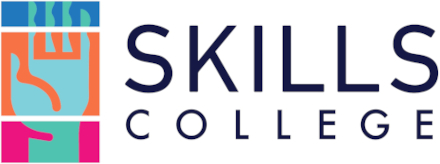About Us
Frequently Asked Questions
Skills Development is a process that aims to improve people’s skills and productivity in the workplace. Skills development is also used to help people find jobs and keep them. It helps with employability, productivity, and competitiveness of employers, as well as promoting self-employment
Skills Development for B-BBEE purposes is simply measured as the expenditure incurred by a company in relation to its annual payroll cost (expressed as a percentage) and headcount.
Skills Development is a priority element to comply with in the Broad-Based Black Economic Empowerment (B-BBEE) Codes.
The B-BBEE Scorecard system is made up of seven elements namely:
- Ownership
- Management and control
- Employment equity,
- Skills development
- Preferential procurement,
- Enterprise development, and
- Socio-economic development
The Skills Development Scorecard allocates points for:
- Skills Development spend on learning programmes for black people in general and black employees with disabilities;
- bursaries for black students at Higher Education institutions.
- learnerships, internships, and apprenticeships for black people;
- the absorption of black people into the workforce of the measured company or into the industry at the end of the learnership, internship, and apprenticeship programmes
The Skills Development Scorecard constitutes 25 points towards the BEE Scorecard.
Generic companies (companies with an annual turnover of more than R50 million) need to spend 6% of their payroll (leviable amount) on BEE Skills Development.
A learnership is a work-based learning programme that leads to an NQF-registered qualification. Learnerships are directly related to an occupation or field of work, for example, electrical engineering, hairdressing or project management. Learnerships are managed by Sector Education and Training Authorities (SETAs) and consists of a theoretical as well as a practical component.
It is governed by the South African Qualifications Authority (SAQA) Act (Act 58 of 1995), the Skills Development Act (SDA) (Act 97 of 1998) and the Skills Development Levies Act (SDLA) (Act 9 of 1999) and any amendment thereof.
Increased grant disbursements from Skills Levy contributions. Many SETAs offer Learnership grants ranging from R 4 000 – R 40 000 per learner. However, the grants are subject to availability and are offered on a first come, first serve basis on the condition that the Learnership address a scarce skill in the sector.
Through the Income Tax Act 58 Of 1962 Section : Section 12h Tax Incentives, SARS offers companies attractive tax incentives for participating in Learnerships. Tax Incentives are deductions on your taxable income that you can claim for each Learnership candidate that you have in your employment, once at the start of the Learnership, and once again at its completion
A Bursary is a sum of money that is awarded to enable someone to study at a university or college, registered by the Dept of Higher Education.
Some government or corporate entities offer the bursary to study at a university and will cover the costs of full tuition fees. Sometimes the bursary will also cover additional costs involved in studying such as textbooks, laptop, living allowance for meals and accommodation.
In line with the Amendments to the B-BBEE Codes published on 31 May 2019 – the Skills Development scorecard targets and weighting points have been amended where the target of 6% of the Leviable Amount for Generic Enterprises is now 3,5% for 6 points (from the previous 8 points), with 2,5% included as a new indicator – Skills Development Expenditure on Bursaries for Black Students at Higher Education Institutions for 4 points, which will be weighted as per the EAP demographic targets.
The Employment Equity Act 55 of 1998 (EE Act) and the Broad-Based Black Economic Empowerment Act 53 of 2003 (B-BBEE Act) encourages certain businesses to employ people with disabilities and to set targets for the employment of black people with disabilities. Businesses that comply are rewarded with B-BBEE points, and in return, offer real benefits and opportunities for persons living with disabilities.
Companies are required to spend 0.3% or their payroll on learnerships for People Living with Disabilities and can gain 4 points on their scorecard for running these.
Absorption means a measure of the Measured Entity’s ability to successfully secure formal permanent or long-term contract employment for the Learner or to assist the Learner’s proceed with further education and training, on completion of the learning journey.
QCTO was established in 2010 in terms of the Skills Development Act Nr. 97 of 1998 the abbreviation stands for The Quality Council for Trades and Occupation and constitutes the third quality council in SA next to Umalusi and the Quality Council for Higher Education.
The basic mandate of the QCTO is to develop and quality assure occupational (which includes trades) qualifications and part qualifications, as well as manage the Occupational Qualification Sub-Framework (OQSF). Its role is to oversee the design, implementation, assessment and certification of occupational qualifications, including trades, on the Occupational Qualifications Sub-Framework (OQSF). The QCTO also offers guidance to skills development providers who must be accredited by the QCTO to offer occupational qualifications.
According to a recent announcement by the Minister of Higher Education, all accredited training will transfer from the SETA’s to the QCTO by June 2023.
The Youth Employment Service (Y.E.S) Initiative is to provide for, and institute, Broad-Based Black Economic Empowerment (B-BBEE) Recognition for Y.E.S Measured Entities and qualification criteria applicable to, the B-BBEE Recognition for Job Creation.
For more information, go to: https://www.beesa.co.za/wp-content/uploads/2020/01/Yes-Initiative-Notice.pdf
